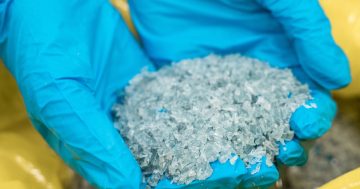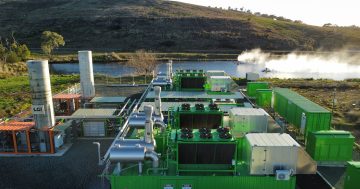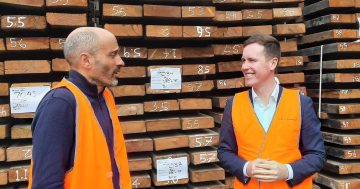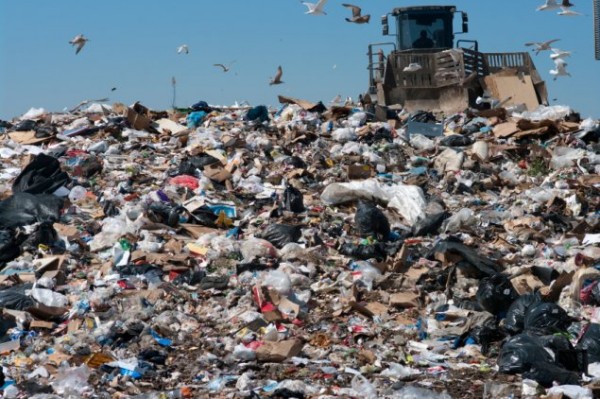
The landfill problem that government wants to solve. Adam Perry says CRS can be part of the solution. Photo: File.
The Canberra partner involved in the Fyshwick recycling proposal has blasted opposition to the plans as classic nimbyism, as he revealed a development application was only weeks away.
Capital Recycling Solutions’ Adam Perry also welcomed government moves for a food waste collection and composting scheme, saying it will enhance the operations of the proposed plant in Ipswich Street.
Mr Perry said the launch of a major campaign against the proposal by the Inner South Canberra Community Council and the Fyshwick Business Association was frustrating and claimed opposition was not as great as was being made out.
”We’re trying to provide a solution to a problem that the government asked industry to provide a solution to,” he said. ”We didn’t initiate this process. It began in 2014 with the Waste Feasibility Study.”
Mr Perry said analysis of the 440 DA submissions, not all of which were negative, showed that there were only between 50 to 60 real objections, with some households and individuals making multiple objections.
”They don’t speak for everybody and don’t represent the large amount of people that they claim to,” Mr Perry said.
He criticised the ISCCC for a lack of genuine, constructive engagement, saying that he had been contacted by some members concerned at the stand.
“It is just classic nimbyism from them, from these retired public servants with too much time on their hands,” Mr Perry said.
He also sought to put an end to claims that CRS would be importing waste from NSW to feed the Fyshwick plant, calling it scaremongering.
”It makes absolutely no sense economically. It’s not in any of our proposals to do that and I don’t know why they want to keep throwing it up. It’s absurd,” Mr Perry said.
He said the food waste scheme, to be trialled next year and expanded city-wide by 2023, would make CRS’s job easier and boost recovery rates.
”We’d rather not handle [food waste]. If that is stripped out of the waste stream that’s fantastic … because the recycling content in that wasn’t there anyway,” Mr Perry said.
”When we send the train to Woodlawn with rubbish on it that costs us a lot of money. We’d rather not put stuff in landfill, we’d rather recycle as much as we can.”
It would also allay any concerns about odour and vermin, although the nature of the proposed facility meant those issues would not be a problem, he said.
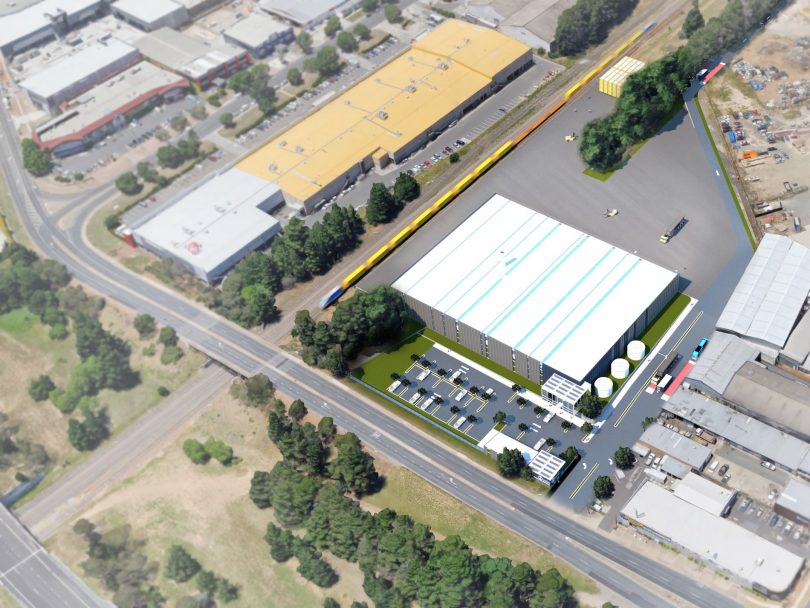
Capital Recycling Solutions’ proposed Material Resource Facility and freight terminal in Ipswich Street. Image: CRS.
Mr Perry said the DA would show better recycling recovery rates than the original proposal three years ago due to technology advances spurred by the Chinese ban on waste imports.
The plant would now deploy more efficient sorting and shredding equipment that would result in much more material recovered for recycling than the 20 per cent originally thought.
Mr Perry said CRS would continue to engage with the community but many of the issues, such as odour control and traffic management, had been addressed in the Environmental Impact Statement which the government had accepted.
”The government has accepted the mitigation strategies that we propose to employ will be successful, so we don’t need to go over them any more. The DA is pretty simple,” he said.
But he remains puzzled that proposing an industrial activity in an industrial suburb such as Fyshwick should be controversial.
He said the ACT still had very low rates of recycling and one of the highest landfill rates per capita of all the capital cities.
At Mugga Lane, 250,000 tonnes of rubbish a year was deposited on the side of a hill and residents in suburbs such as Macarthur endure the smell whenever the wind is blowing in their direction.
”Nobody is doing anything about that,” he said.
”I can’t understand why there is a handful of people jumping up and down about this [the CRS proposal]. They really should stand down at Mugga Lane and have a look there. Do you really want to continue this Mugga Lane practice well into the future?”













